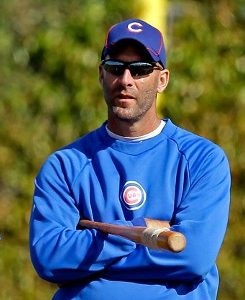
Let’s start with one disclaimer about last night’s first-half finale between the Chicago Cubs and the St. Louis Cardinals: The better team won. Anytime a team raps out 21 hits and doesn’t make an error in a nine-inning game, they should come out on top. And that’s just what happened at Wrigley Field last night.
But there was a glimmer of hope that the Cubs might win the game and take three of four from the Cardinals. With the way the Cubs have been playing over the past two weeks, it seemed reasonable to think that they might go into the All-Star break with a mild head of steam.
It certainly looked like that could happen when Cody Ransom came through with a two-out, pinch-hit double off of Edward Mujica, the Cardinals’ closer who was brought into the game in the eighth inning. With a tie game, and the momentum in their favor for a home game, it sure felt like it was the Cubs’ night.
But rather than bringing in Edwin Jackson into the game, and saving Kevin Gregg for a save situation that might develop in the 10th inning or later, Cubs manager Dale Sveum went for the win by bringing Gregg in to pitch the ninth inning. It was an aggressive move, and Sveum would have been praised if it had worked out.
But the move blew up in the Cubs’ face, instead. Gregg gave up four runs on four hits, and the Cardinals pulled out a 10-6 win to even the series at two games apiece.
Gregg had been reasonably dependable this season, and was almost certain to bring some interesting trade offers as the trade deadline draws near. In the wake of Sunday night’s performance, the offers made to the Cubs’ front office will be considerably weaker.
The Cubs are now left with a long stretch of off days to consider what has been their Achilles heel time and again this season: an ineffective bullpen. With Gregg likely to be traded for whatever he still might bring, the Cubs will head into the final two months of the season looking for answers, just as they have been for the duration of the Theo Epstein era.
